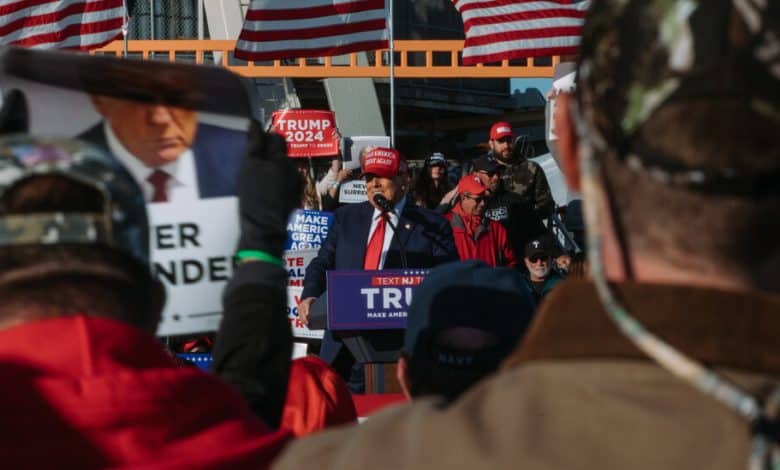Trump Is Still at War With the Constitution

At a rally in Wildwood, N.J., on Saturday, Donald Trump said that if he is re-elected, he will “immediately deport” any campus protesters who “come here from another country and try to bring jihadism or anti-Americanism or antisemitism.”
Of course, Trump dwells in linguistic imprecision. What does “try to bring” mean? Are we using his definitions of jihadism, anti-Americanism and antisemitism? How would those sentiments be monitored? Would the deportations be extrajudicial? Would the deportations be only of student visa holders, or would it include green card holders?
This campaign pledge — this threat — is not only unworkable; it’s ludicrous. But it’s a powerful bit of propaganda. It ties together Trump’s message of nativism and xenophobia with one of his fixations: an iron-fist approach to protests that challenge his beliefs or interests.
Trump understands, intuitively, the power of crowds, and views it as a pressing threat when aligned against him.
Former Defense Secretary Mark Esper has said Trump was furious about the protests in the summer of 2020 after the murder of George Floyd. In his memoir, Esper wrote that in one meeting, Trump asked, “Can’t you just shoot them? Just shoot them in the legs or something?” According to Esper, Trump believed that the protests made the country — and him — look weak.
Trump has a thirst for authoritarianism because he conflates suppression with strength. In a 1990 interview with Playboy, Trump said this about the Chinese government’s response to the Tiananmen Square protests: “They were vicious, they were horrible, but they put it down with strength. That shows you the power of strength. Our country is right now perceived as weak.”
